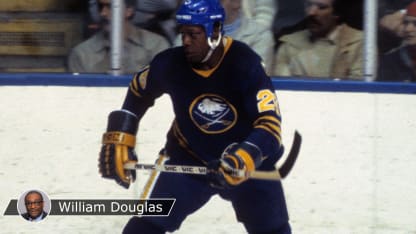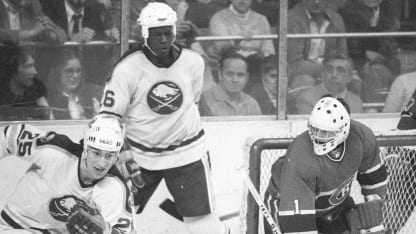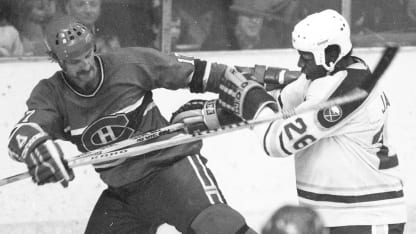NHL Commissioner Gary Bettman said when James donned a Sabres jersey 39 years ago "he did more than become an NHL player.
"He became the first Black American player in the NHL and a powerful role model for Black children in the United States to see themselves reflected in hockey," Bettman said. "The NHL joins the Sabres in acknowledging Val's historic achievement and his contributions to ensuring hockey is indeed for everyone."
James had a brief NHL career. He played seven regular-season games and three more in the Stanley Cup Playoffs with Buffalo in 1981-82, and four regular-season games with the Toronto Maple Leafs in 1986-87. However, his legacy is undeniable.
At least 15 U.S.-born Black players have played in the NHL since James' debut. They include Columbus Blue Jackets defenseman Seth Jones, Sabres forward Kyle Okposo, former Winnipeg Jets defenseman
Dustin Byfuglien
, Minnesota Wild forward Jordan Greenway, who became the first Black player on a U.S. Olympic hockey team in 2018, and former Sabres forward
Mike Grier
, who was an assistant on the coaching staff of the New Jersey Devils last season.
There are more in the pipeline. Five Black players born in the United States -- goalie
Isaiah Saville
and defensemen
K'Andre Miller
,
Marshall Warren
,
Jayden Struble
and
Jordan Harris
-- were among the players of color selected in the 2018 and 2019 NHL Drafts.
"Val James once said that he never thought of himself as a trailblazer -- but the entire hockey world should recognize that he is one," said Kim Davis, NHL senior executive vice president, social impact, growth initiatives and legislative affairs.
James' accomplishment wasn't widely recognized when it happened in 1981. The Sabres defeated the Flyers 6-2 and the headlines from the game were the two goals scored by Buffalo left wing
Tony McKegney
, a Black Canadian player, the NHL regular-season debut of Flyers rookie goalie
Pelle Lindbergh
and a gruesome right ankle injury to Philadelphia defenseman
Bob Dailey
that effectively ended his career.
"I don't think anyone actually thought about it," James told NHL.com last year. "I never thought about it at the time either. I thought about it later, which was a great achievement for me in my own mind, but I think it kind of slipped under the radar."
James was a late bloomer hockey-wise. He was born in Ocala, Florida, and didn't put on a pair of skates until he was 13 and his father, Henry, was working at the Long Island Arena in Commack, New York -- then the home of the minor league Long Island Ducks -- as its operations manager
Three years later, James left home and played two seasons with Quebec of the Quebec Major Junior Hockey League. The Detroit Red Wings selected him in the 16th round (No. 184) of the 1977 NHL Draft but never signed him.




















